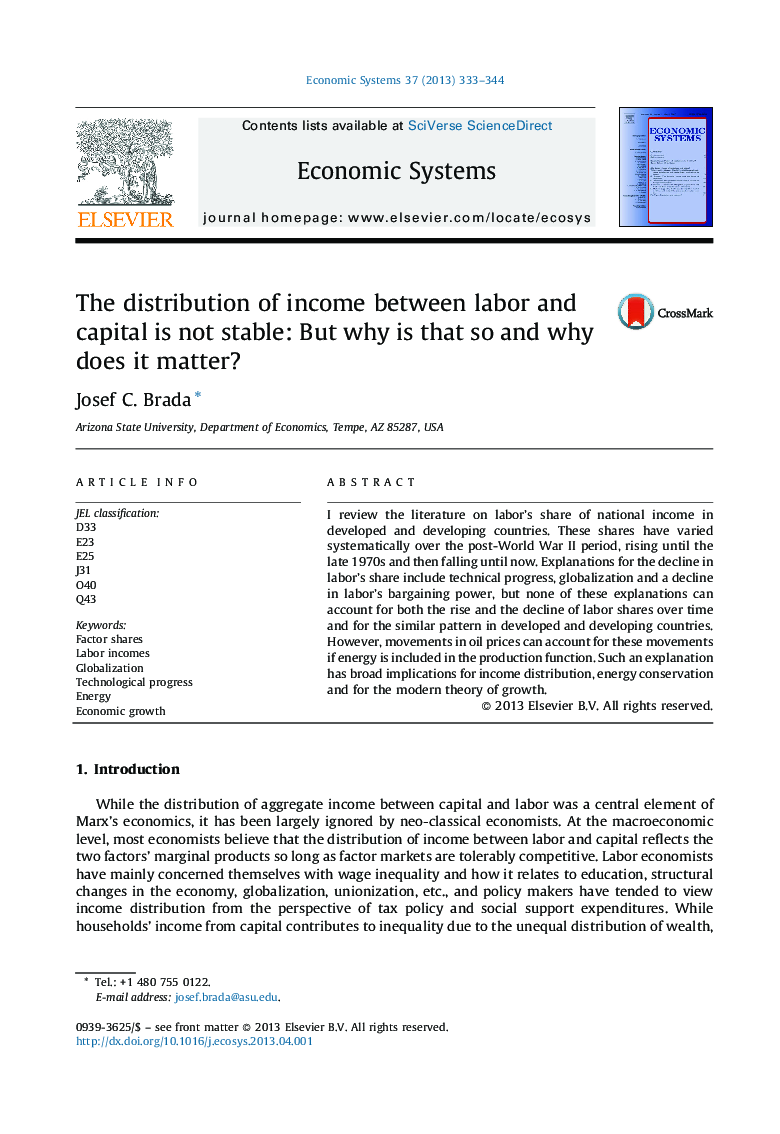| کد مقاله | کد نشریه | سال انتشار | مقاله انگلیسی | نسخه تمام متن |
|---|---|---|---|---|
| 5056363 | 1371628 | 2013 | 12 صفحه PDF | دانلود رایگان |
- Labor's share of income increased post-World War II until the late 1970s, then it began a steady decline.
- Changes in labor's share were similar in nature and timing in developed and developing countries.
- Conventional explanations of falling labor shares are technological progress, globalization and labor's bargaining power.
- Conventional explanations are not consistent with the observed facts.
- Energy prices can explain both the rise and the decline in labor's share in both developed and developing countries.
I review the literature on labor's share of national income in developed and developing countries. These shares have varied systematically over the post-World War II period, rising until the late 1970s and then falling until now. Explanations for the decline in labor's share include technical progress, globalization and a decline in labor's bargaining power, but none of these explanations can account for both the rise and the decline of labor shares over time and for the similar pattern in developed and developing countries. However, movements in oil prices can account for these movements if energy is included in the production function. Such an explanation has broad implications for income distribution, energy conservation and for the modern theory of growth.
Journal: Economic Systems - Volume 37, Issue 3, September 2013, Pages 333-344
